Purchasing a new home is so excited and such a whirlwind, but if it’s your first time, or even if it’s been a while, there are likely a few things that you haven’t considered in your home buying process. So, what to look at when buying a house? Some of these items may be obvious, but many of them can save you time and even money!
What to look at when buying a house
1. Can I afford a house?
I know, I know this is obvious, but so overlooked. The market right now is so hot and in a major bubble. Everyone has been saving up from not going out or going on vacation and want to put down roots.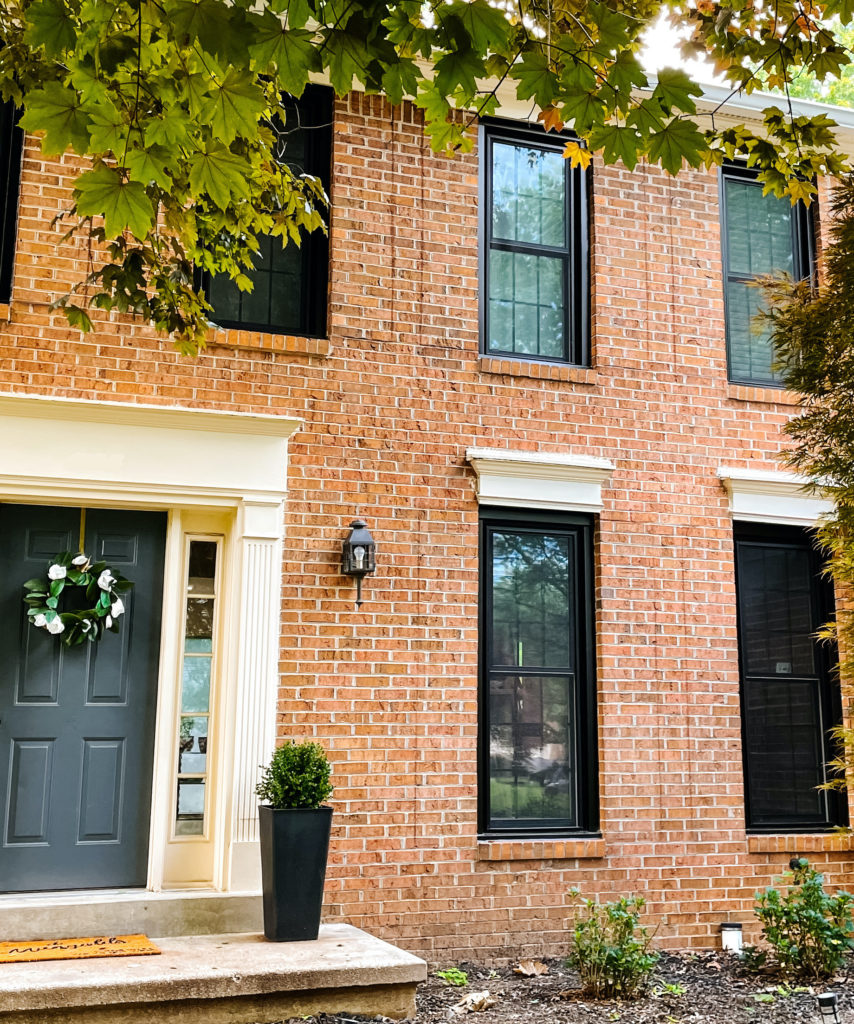
I LOVE IT! But also want you to be smart about it. Google any mortgage calculator and figure out how much your monthly expensive will be. Does that include utilities? Remember, heating and cooling a single-family home is going to be more expensive than an apartment. Most mortgage lenders will also be happy to walk you through the money side of things – after all, they are on the line, too.
My whole point is don’t not buy, just choose something you can afford. For us, it was really important that we bought a house that we could:
- Afford to renovate – because the worst thing would be to buy a fixer upper and then run out of money and not be able to actually fix it.
- Afford using just one of our salaries. This one ended up being a big one because I actually did leave my job a couple months ago. We wouldn’t have had that option if we bought a house that required 2 incomes to make the mortgage.
2. Are the schools in my area any good?
Don’t pay attention to just the school district, but the schools themselves. Depending on your area the quality of the schools within the same district can vary drastically.
Don’t have kids and don’t plan to? It gives you a little bit more wiggle room, but you still need to think about your resale value. The fact of the matter is, the better the schools are, the more likely the higher your house will sell for.
3. Do you need the 20% down payment? Or is mortgage insurance an option for you?
This is one that I didn’t even think about until my husband told me he did it on his first townhouse.
We’re raised to believe that you need to have 20% down to buy a house, right? But let’s say you looking for a house that’s $300,000. That means you need to save $60,000 for the down payment plus let’s say another $15k for closing costs. And that’s before renovations. Do you have $70k laying around? Because I know we didn’t.
Mortgage insurance essentially allows you buy a house without needing the full 20%. Many mortgage lenders will let you put down as little as 5% (sometimes 3.5% if this is your first home). However, there are some factors you need to consider when taking this route.
First, the lower your percentage down, the higher your mortgage payment will be.
Secondly, it’s called insurance for a reason. There is a fee attach to it, but it’s small. Let’s say for that $300,000 home we put down 10% or $30k. Our mortgage insurance would cost us about $245 a month until we’ve paid enough into the mortgage to equal the 20%.
We ran a break-even analysis too see how much of a down payment would make financial sense for us. If you’re considering home renovations like a new kitchen or bathrooms, these can also help you get rid of the mortgage insurance faster. Once the work is complete, getting your house re-appraised should increase the value of your home and in turn increase your equity in your home. Just be smart about which renovations you decide to tackle first – do some homework to see what renovations bring the most value.
That brings me to another one:
4. Are my reno plans realistic?
Not all walls can come down easily, reno’s can get very costly so make sure you know what you’re taking on before you purchase.
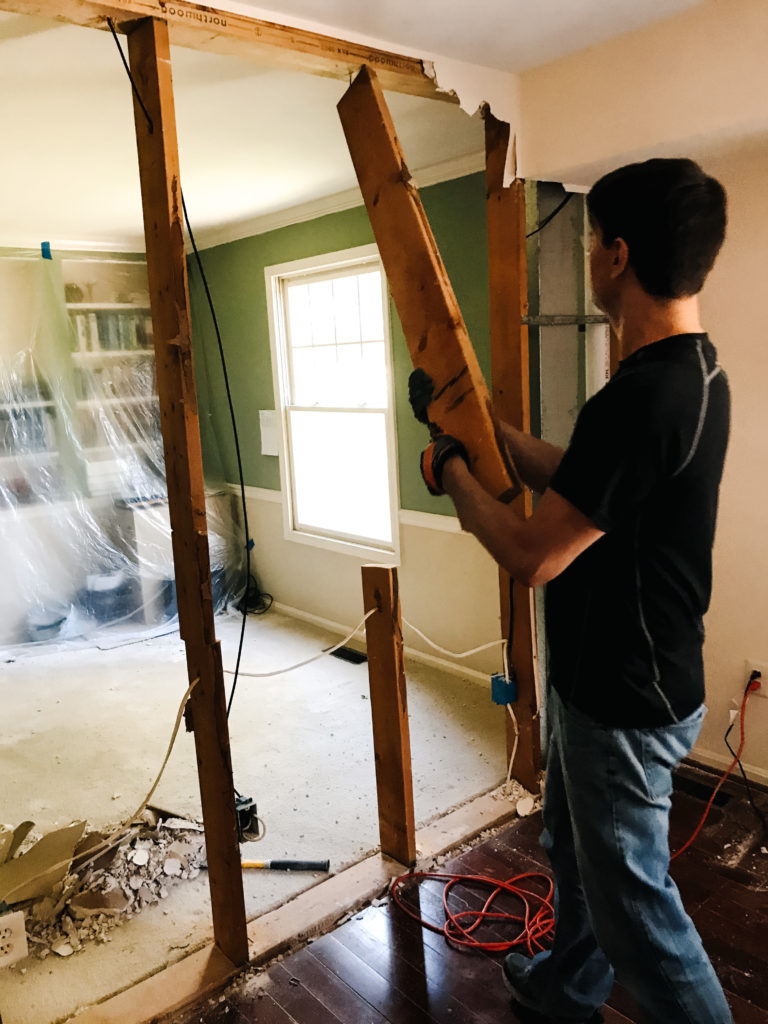
I had wanted to create a beautiful moment in the front of our house with giant windows on each side of our front door. Then I learn that because our house is brick, it would require a stone mason to come out to do the demo on top of the structural engineer to put in the huge header that would be required to support the big windows. Our estimate ended up being $15k BEFORE the windows even got priced. Pretty? Yes! Worth it? No.
And from experience, EVERY project is more challenging than you think it’s going to be.
5. Can I add my reno budget into my mortgage late in the game?
The short answer, not really. Honestly, I just assumed you could tack on a little sumthing sumthing to your mortgage to cover reno costs at any stage of the home buying process. Turns out that would be a completely different loan and likely harder to get because you don’t have any equity in your house or other collateral. If you’re looking to add money onto your mortgage for renovations, make sure you plan for that in the very beginning. If you get approved for a $300k home and that’s the cost of the house, that’s all the money you’re getting unless you start the loan process from the beginning (which would delay settlement).
6. Have I moved money around in my bank accounts recently?
This one was SUCH A PAAAAINNN. For those of you that don’t know me. Kevin and I got married in February and bought our house in April. We had deposited all of our wedding gift money like any normal couple would, but when it came to the financing of our house two months later, these guys were like forensic accountants. We needed to track down an explanation for every inbound payment during the time period.
The reason they do this is they want to make sure that you have the money to pay for the mortgage yourself and you’re not inflating your assets to just appear like you can. I get it, but buyer beware, it’s really annoying so avoid it leading up to your purchase if you can.
7. Do homes in my area have a history of any issues?
A friend of mine bought a house and the inspection came back clean. It was only when she went to replace the floors that the local installer told her that houses in her area had asbestos under the existing floors. All of a sudden, she was paying $3,400 for a team to come out to remove her old flooring and treat the asbestos. AND she had to figure out where to live during that time period because ya can’t stay there!
Asbestos isn’t the only thing that could come up. Radon and Lead are other common issues to pop up in a home that may not show up in the home inspection. Do your research on the area, when was the home build? What other materials were used? You may even be able to negotiate the price of the house down.
8. What is crime like in the area?
It seems obvious, but it needs to be said – what is the crime rate in your area? Look out for petty theft all the way to violent crimes in your area as well as checking the sex offender registry. It can be shocking what’s going on in your future backyard.
9. What things do I need to buy for a new house right away?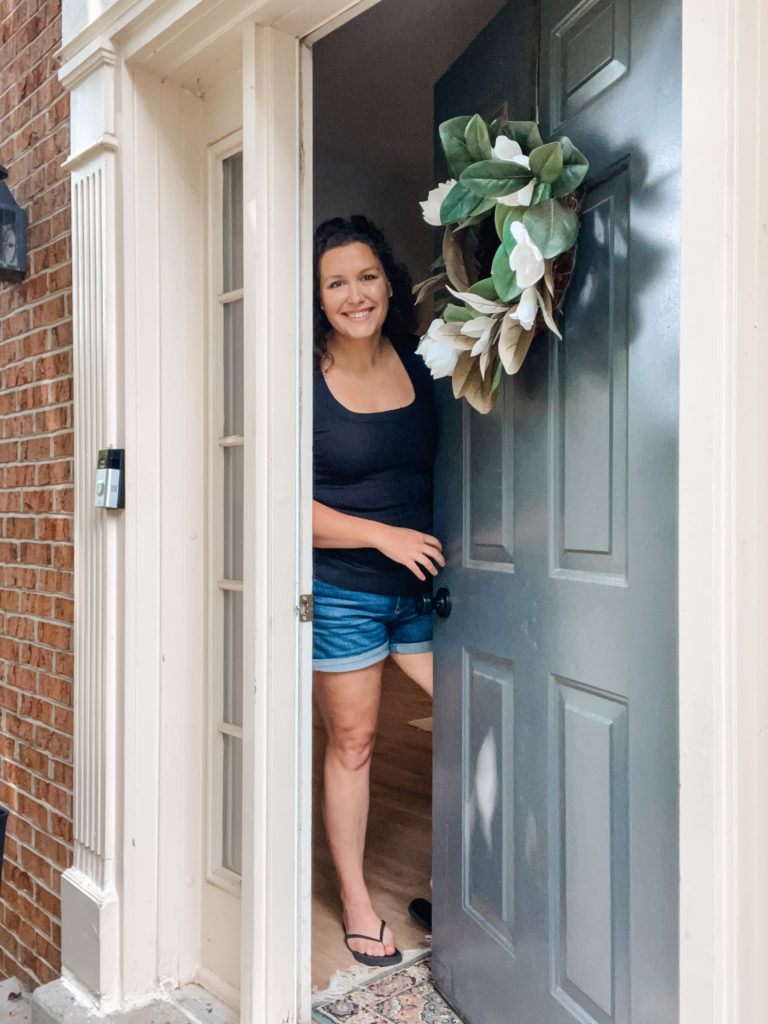
We moved into our house from a town home and the one thing that wasn’t on our radar at all was a lawn mower. I can tell you from experience that it is not ideal to be the new kids in the neighborhood and two weeks in already be the unkept lawn house. Do an inventory of what you’ll need when you move in. If the appliances are all left behind, do they work? Our dryer didn’t work from day one which meant that we had to create a clothesline in the basement for two weeks while we waited for the new one to arrive.
10. How close is the nearest grocery store? Hardware store?
Grocery stores you’ll probably think about, but don’t underestimate how many times you’re going to running to the hardware store in the first couple of months in your new place. Is that going to be a 15-minute drive or 35? Of course, you’re not going to decide not to buy a house just because it’s not near a Home Depot… well maybe…., but it’s good to know what you’re getting yourselves into, especially if you plan to do a lot of renovations to the house. Even if your home is currently move-in ready, be prepared… owning a home always has upkeep and surprise things that need to be fixed.
11. Is the house gas or electric?
Knowing if your house is gas or electric is more than just the ability to have a gas range or fireplace. It’s going to determine how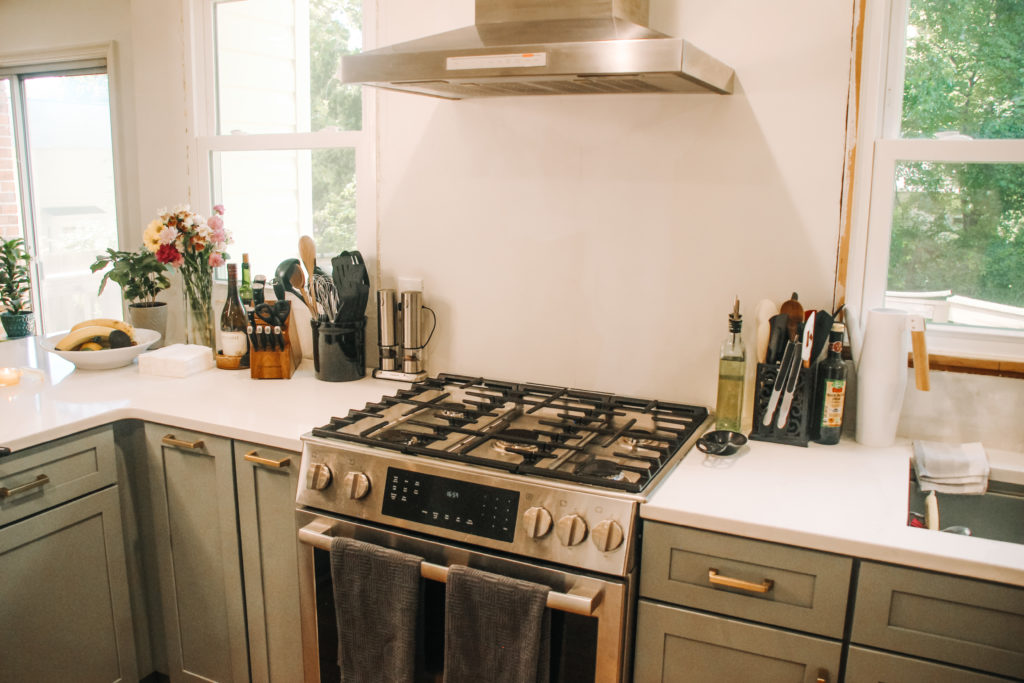 much your electric bill will cost each month. If you’re going from gas to electric that’s going to be a big shift that you need to be prepared for. Can’t live without gas? You may want to look into the costs of getting a propane tank installed to give you back some of the features you’re used to. Used to having electric? Do some research into what having gas means such as getting a natural gas detector for your home.
much your electric bill will cost each month. If you’re going from gas to electric that’s going to be a big shift that you need to be prepared for. Can’t live without gas? You may want to look into the costs of getting a propane tank installed to give you back some of the features you’re used to. Used to having electric? Do some research into what having gas means such as getting a natural gas detector for your home.
Buying a home is going to be such an exciting time, but don’t add on the extra stress of learning as you go. Applying these helpful tips on what to look at when buying a house will help make the experience even better!
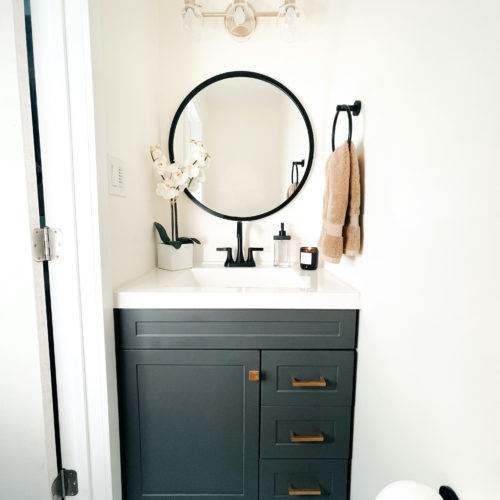




Leave a Reply